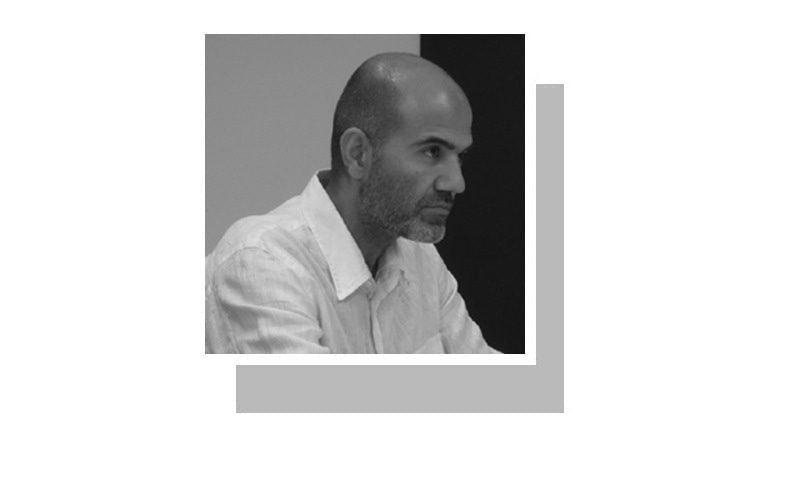AS TV ratings and social media hits go, Pakistan’s unending game of thrones is second to none. The pitched battles between the authorities and PTI supporters outside Imran Khan’s residence in Lahore had millions glued to their screens. Prior to this Rana Sanaullah and Maryam Nawaz sent ratings sky-high by publicly attacking ex-spy chief Gen Faiz Hameed. More is likely to unfold.
The political soap opera has sharpened conflicting opinions amongst the commentariat. Some argue that Khan is a blight on our emaciated democratic process and should be met with state force for refusing to present himself for arrest and using his party workers as ‘human shields’. Others argue that there must be solid principles which underlie any democracy, and sanctioning state coercion represents a caving into familiar logics of the establishment-centric system.
But very few are deliberating what bearing the obvious divisions within Pakistan’s structure of power will have on the teeming millions trying to navigate inflation, lack of employment and the indignities of state and class power. Because this is ultimately what matters. Or has this basic imperative gotten lost amidst the noise?
Three interrelated theses about Pakistan’s current political predicament merit our attention:
There’s little focus on how the divisions will hit the people.
There has never been greater public disclosure about the grimy realities of the establishment-centric system. Khan is, in fact, a microcosm of all half-brained khaki manipulations of Pakistan’s political process over the past 75 years; the establishment’s inability to contain the blowback that his deposal has engendered leaves it not only exposed for the world to see but also constrains its ability to carry on with business as usual. Indeed, the otherwise open secret about Khan’s close ties with individuals like Gen Hameed and the support he apparently enjoys within segments of the military rank-and-file suggest that the establishment is increasingly more fragmented within. Similar fragmentation appears to afflict institutions like the superior judiciary.
Whatever the internal contradictions of the system, potentialities for substantial change will only come to fruition if there is a popular and substantial politics of the masses from below. Anyone who is willing to see the writing on the wall must acknowledge that the PDM/PPP government is not the saviour of democracy that it claimed to be almost a year ago when it took over the reins of government. If the intelligentsia continues to limit the bounds and imaginaries of politics to the merry-go-round of mainstream parties competing to win favour with the establishment then it is not contributing to the democratisation of Pakistani state and society.
The rapid mediatisation of politics — as reflected, for instance, in Khan’s incessant deployment of social and other media platforms to propagate his narrative — has turned most of the working mass of people into passive consumers of the drama unfolding on their TV and smartphone screens. And an influential minority into partisan supporters ever ready to follow their leaders to the depths without concern for the end goal. The latter trend is most pronounced in the PTI’s case; it was in evidence when Khan was prime minister and on the ‘same page’ with the then army leadership and is still evident today as he seeks to regain power. But it is also a dominant trend in the political mainstream at large.
This mediatisation of politics also equates to very limited attention to bread-and-butter issues of the working people, like inflation, dispossession and militancy; even when they do garner some space on TV or social media, there is little to no sustained on-ground mobilisation of the proverbial workers, peasants and other toiling classes. Without mobilised social forces whose political interests, and hence vision, transcend the game of thrones, the corporate media and intelligentsia’s obsessive focus on sensational events and personalities cannot be displaced.
I reiterate that diehard supporters of mainstream parties represent a still small proportion of our 230 million-strong population. Slogans aside, those who really believe in democracy and ending the role of the establishment in politics will have to take up economic and other concerns of the working masses, especially in cases where the military’s corporate interests alongside those of private capitalists and landlords lead to dispossession, repression and exploitation.
Beyond the immediate benefits of governmental power, real democratic politics must build pressure for structural changes to end our reliance on external debt, meet the long-term needs of our young population, deal meaningfully with climate change and ensure ethnic/regional divides do not eat up the federation. A heavy burden indeed, but one that young progressives must shoulder.
The writer teaches at Quaid-i-Azam University, Islamabad.
Published in Dawn, March 17th, 2023












































Dear visitor, the comments section is undergoing an overhaul and will return soon.